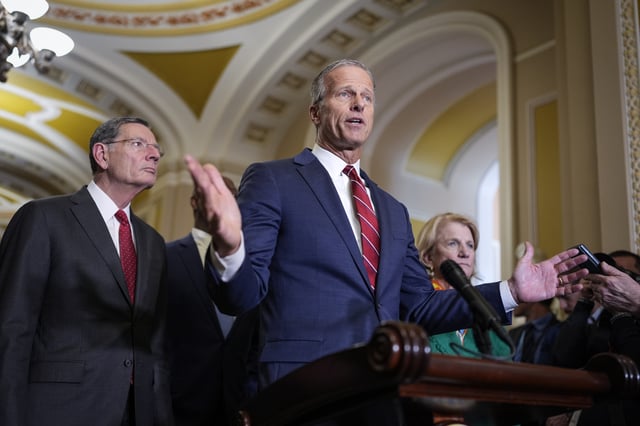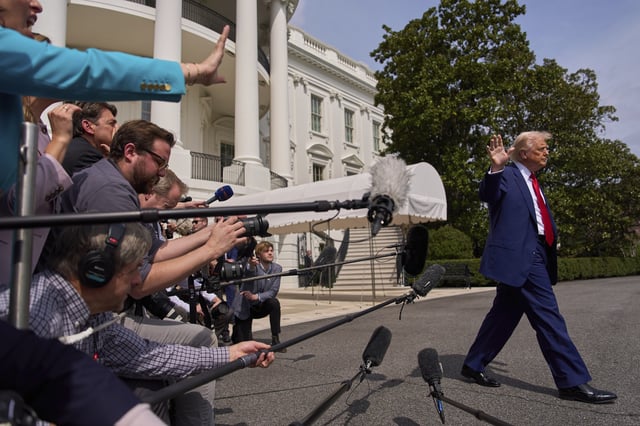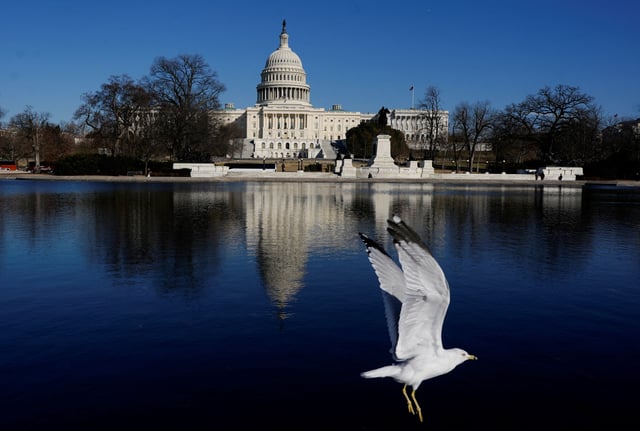Overview
- The Senate passed a budget resolution early Saturday morning, advancing President Trump’s legislative priorities, including permanent extensions of the 2017 tax cuts, $175 billion for border security, and $150 billion for defense spending.
- The resolution unlocks the reconciliation process, allowing Republicans to bypass a Democratic filibuster and pass legislation with a simple majority vote.
- Key differences remain between the House and Senate plans, with the House proposing $2 trillion in spending cuts compared to the Senate’s $4 billion, leading to tensions within the GOP.
- Concerns about fiscal responsibility and Medicaid cuts have sparked opposition from some Republicans, including Senators Susan Collins and Rand Paul, who voted against the resolution.
- The House is expected to take up the Senate resolution next week, but internal GOP disagreements over deficit impacts and spending priorities could delay progress.



